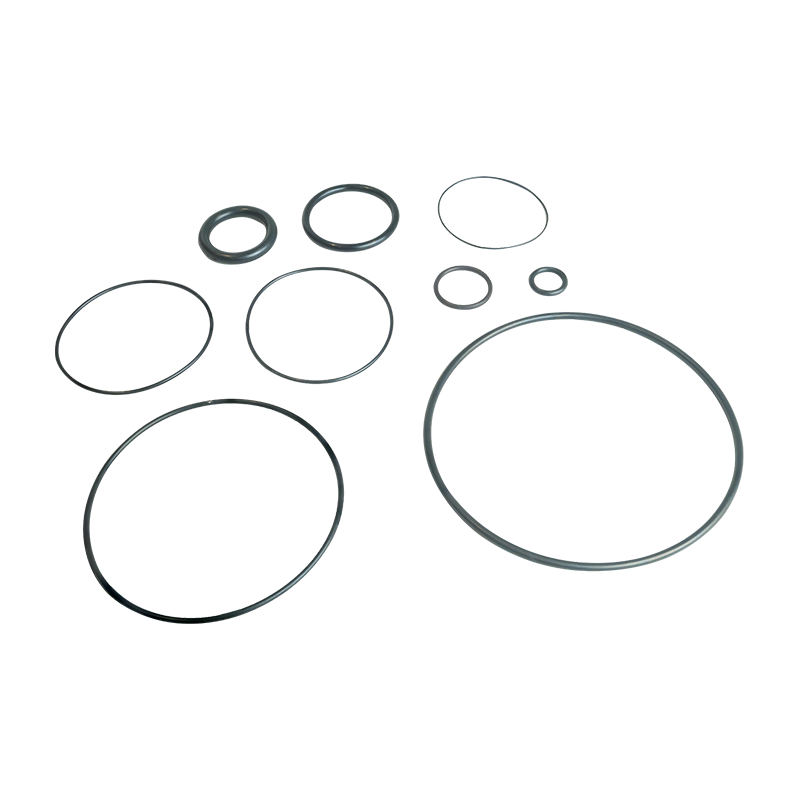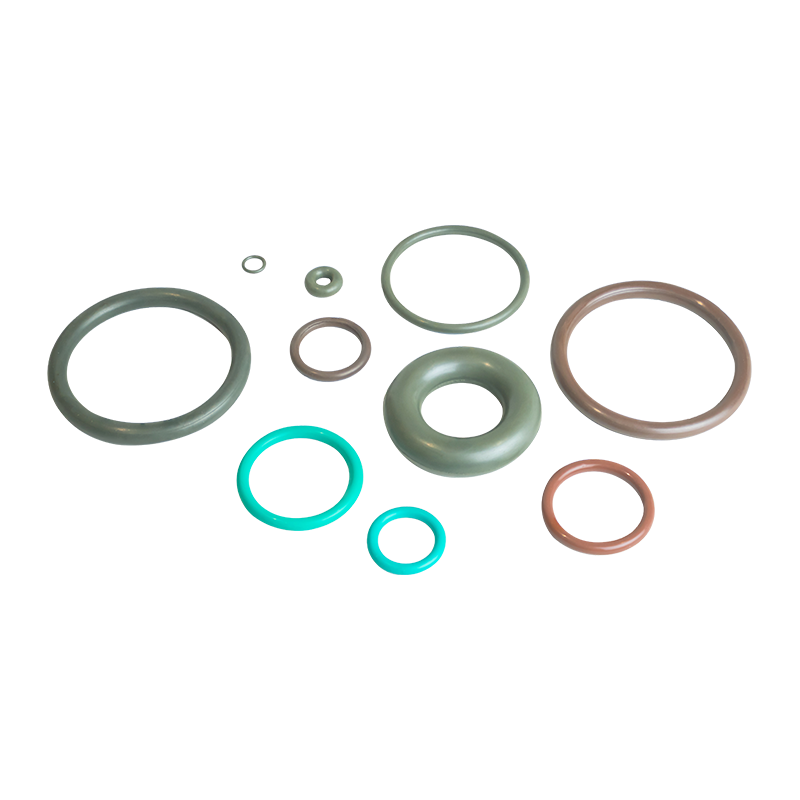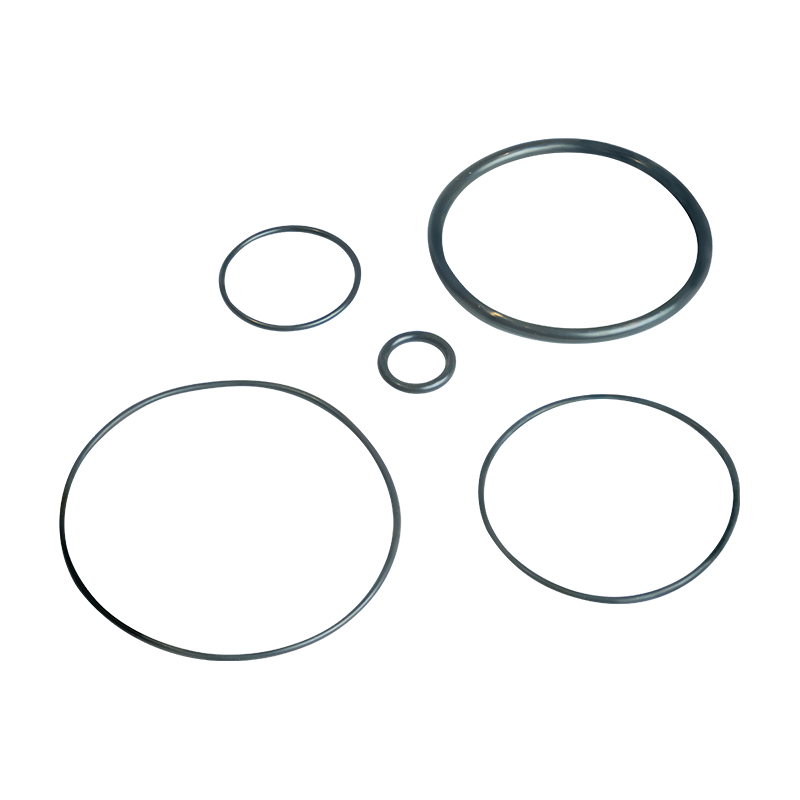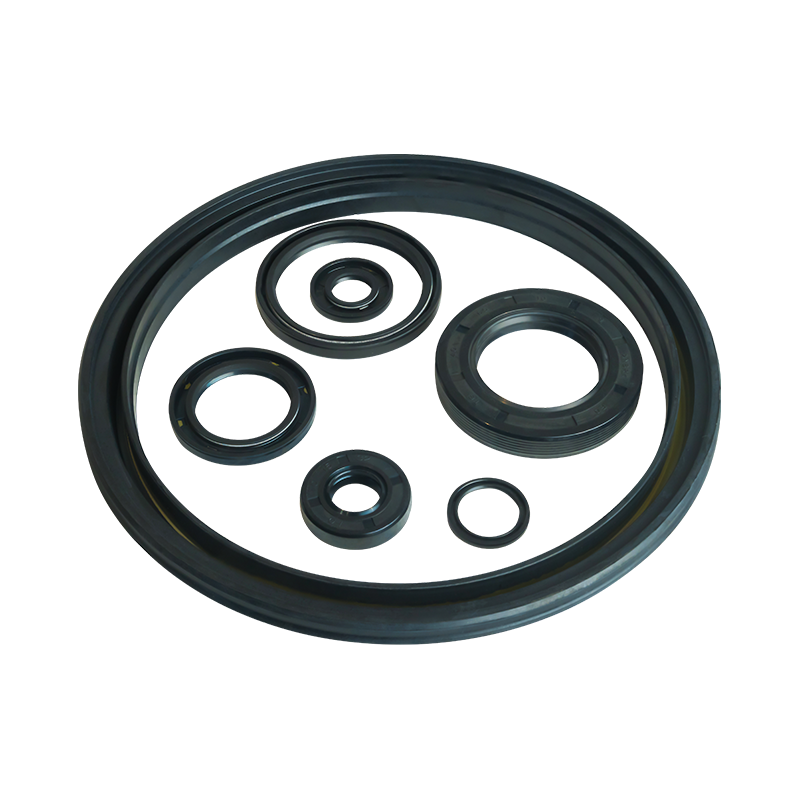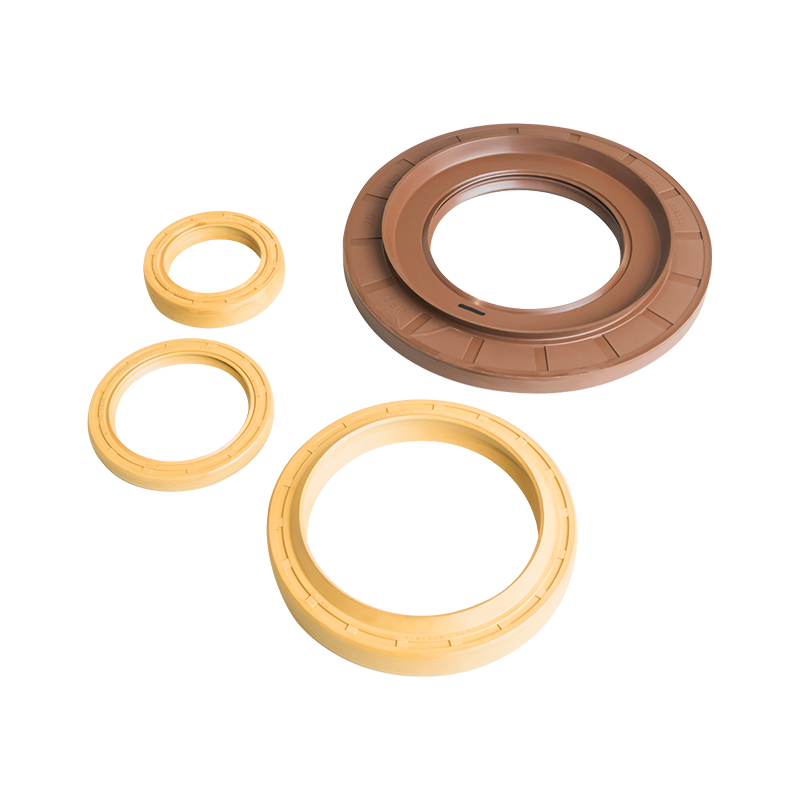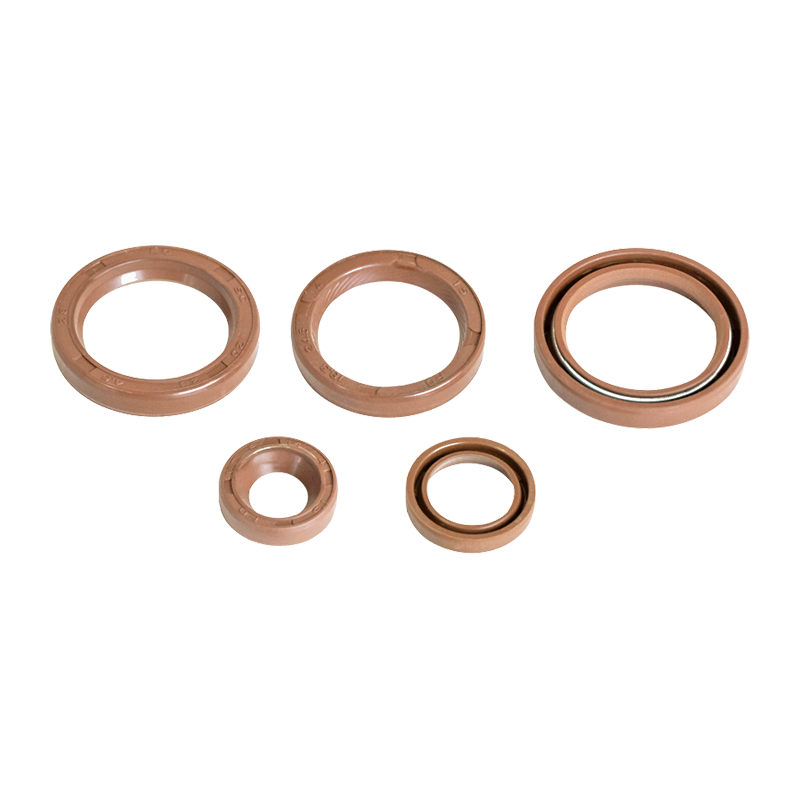Preventing Leaks, Protecting Engines: How Do FAWDE Oil Seals Reduce Downtime?
Introduction: The Critical Role of Sealing in Engine Reliability
In the world of machinery and engine maintenance, the smallest components often bear the most significant responsibility. Among these, the oil seal stands as a critical guardian of engine integrity and performance. Unplanned downtime is one of the most substantial costs in any operation reliant on engines, from transportation and agriculture to power generation and industrial machinery. A significant portion of this downtime can be traced back to fluid leaks, leading to lubrication failure, contamination, and eventual catastrophic engine damage.
Understanding the Anatomy and Material Science of the PTFE Oil Seal
To appreciate how the fawde engine parts ptfe oil seal reduces downtime, one must first understand its fundamental construction and the properties of its primary material. Unlike conventional rubber seals, this component leverages the unique characteristics of Polytetrafluoroethylene (PTFE) to achieve a new level of performance. The seal is typically composed of a PTFE sealing lip, a spring element known as a garter spring, and a metal outer case. Each part plays a vital role in its overall function.
The PTFE material itself is the cornerstone of its advantages. PTFE is renowned for its exceptional chemical resistance, remaining inert when exposed to a wide range of engine oils, lubricants, and synthetic fluids. This resistance prevents the swelling, softening, or cracking that can afflict elastomeric seals, thereby maintaining a consistent seal over time. Furthermore, PTFE possesses an extremely low coefficient of friction. This property is crucial as it minimizes the heat generated from friction against the rotating shaft, reducing wear on both the seal and the shaft itself. The material is also capable of operating across a much wider temperature range than many traditional materials, maintaining its integrity in both extreme cold and intense heat. The sealing lip is meticulously designed to maintain optimal contact pressure with the shaft, a feature that is precisely calibrated and enhanced by the garter spring. This spring ensures that the lip follows any minor dynamic movements or wear over time, compensating and maintaining a tight seal. The metal outer case provides a rigid, secure fit within the housing, preventing any micro-movements that could lead to leakage paths. This combination of advanced material and thoughtful mechanical design forms the foundation upon which the fawde engine parts ptfe oil seal builds its reputation for reliability.
The Direct Link Between Oil Seal Failure and Costly Downtime
Before delving into the solution, it is essential to quantify the problem. The failure of a conventional oil seal is rarely an isolated event; it is often the catalyst for a chain reaction of escalating issues that culminate in operational stoppage. The primary consequence of seal failure is, of course, fluid leakage. Even a minor, persistent leak leads to a gradual loss of lubricating oil. As oil levels drop, the engine’s internal components—such as bearings, pistons, and camshafts—begin to experience increased friction and wear. This can lead to overheating and a rapid degradation of engine performance.
Beyond the loss of lubricant, a failing seal also compromises the engine’s barrier against external contaminants. Dust, dirt, moisture, and other abrasive particles can enter the engine, mixing with the oil to create a slurry that accelerates wear on all internal surfaces. This contaminated lubrication is a primary cause of premature engine failure. The financial implications extend far beyond the cost of a replacement seal and a few quarts of oil. They encompass the labor required for diagnosis and repair, the cost of more extensive engine components damaged by poor lubrication, and, most significantly, the revenue lost during the unplanned downtime. For a logistics company, this could mean delayed shipments. For a farm, it could mean a halted harvest. For a power generator, it could mean an interruption in electricity supply. Therefore, selecting a sealing solution that proactively prevents these failure modes is not merely a procurement decision; it is a strategic investment in operational continuity. The fawde engine parts ptfe oil seal is engineered specifically to address these points of failure, directly targeting the root causes of downtime.
Key Performance Features That Minimize Operational Disruptions
The design and material composition of the fawde engine parts ptfe oil seal incorporate several key features that directly contribute to its ability to minimize leaks and, by extension, downtime. These features work in concert to provide a level of reliability that surpasses that of conventional sealing options.
Exceptional Wear Resistance and Long Service Life: The inherent durability of PTFE, combined with its low-friction properties, results in exceptionally slow wear rates for both the seal and the shaft. The sealing lip is designed to withstand the constant rotational friction against the shaft surface. This translates directly into a longer service interval, meaning engines can operate for extended periods without requiring seal replacement. For equipment operators, this predictability allows for maintenance to be scheduled during natural breaks in operation, thereby avoiding disruptive, unplanned repairs. The extended lifespan of the seal reduces the frequency of maintenance events, lowering the total cost of ownership over the engine’s operational life.
Superior Performance in Extreme Temperatures: Engines operate in environments with wide thermal fluctuations. Cold starts can challenge the flexibility of traditional seals, while high operating temperatures can cause them to harden and crack. The fawde engine parts ptfe oil seal is engineered to perform consistently across a broad temperature spectrum. Its material remains functional from very low temperatures up to high-temperature environments, ensuring a reliable seal is maintained whether the engine is starting in a frigid climate or working under a heavy load in desert heat. This thermal stability prevents the common failure modes associated with thermal cycling, which is a frequent cause of seal leakage in demanding applications.
Robust Chemical Compatibility: Modern engines utilize a variety of advanced lubricants, including synthetic oils and additives that can be aggressive to certain materials. The PTFE used in these seals is virtually inert, offering excellent resistance to nearly all types of engine oils and industrial fluids. This chemical resistance ensures that the seal’s material properties do not degrade upon exposure, maintaining the integrity of the sealing lip and its geometry. This compatibility prevents the swelling or shrinkage that can occur with elastomeric seals, which compromises the seal’s contact pressure and leads to leaks. For buyers, this means the fawde engine parts ptfe oil seal is a versatile, safe choice compatible with a wide range of fluids, simplifying inventory and reducing the risk of application error.
The following table summarizes these core features and their direct impact on downtime reduction:
| Performance Feature | Technical Benefit | Impact on Downtime |
|---|---|---|
| PTFE Material & Low Friction | Reduces wear on seal and shaft, minimizes heat generation. | Extends service intervals, prevents failures caused by wear and overheating. |
| Broad Temperature Tolerance | Maintains sealing capability from very low to very high temperatures. | Prevents leaks during cold starts and under high thermal load, ensuring reliability in diverse climates. |
| Excellent Chemical Resistance | Withstands modern lubricants and additives without degrading. | Eliminates leaks caused by material incompatibility, swelling, or chemical attack. |
Application-Specific Benefits Across Various Industries
The reliability of the fawde engine parts ptfe oil seal delivers tangible benefits across a wide spectrum of industries where engine performance is critical. The common thread in all these applications is the high cost associated with unscheduled maintenance and the paramount importance of operational readiness.
In the commercial transportation and logistics sector, vehicle uptime is directly correlated with profitability. A leaking seal in a truck’s engine can lead to a roadside breakdown, resulting in costly tow services, delayed deliveries, and potential contract penalties. The long service life and robust construction of the fawde engine parts ptfe oil seal help fleet managers adhere to planned maintenance schedules, reducing the incidence of en-route failures. The seal’s ability to handle long periods of continuous operation and thermal cycling makes it ideally suited for the demanding life of a commercial vehicle. For agricultural machinery, the situation is often defined by seasonal windows of intense activity. A breakdown during planting or harvest can have severe financial consequences. Equipment operates in dusty, dirty environments where seal integrity is the first line of defense against contaminant ingress. The reliable sealing performance of this component protects vital engine components from abrasive wear, ensuring that tractors and combines are available when they are needed most. Similarly, in power generation, whether for primary power or backup systems, reliability is non-negotiable. A seal failure in a generator can lead to a loss of power, with serious implications for data centers, hospitals, and industrial facilities. The fawde engine parts ptfe oil seal provides the assurance of consistent performance, helping to ensure that critical power systems activate and run without issue. In all these cases, the common denominator is the transition from reactive maintenance, which addresses failures after they occur, to proactive reliability, where components are selected for their ability to prevent failure in the first place.
The Economic Rationale: Total Cost of Ownership Versus Initial Price
For wholesalers and buyers, the decision to stock or specify a component often involves a careful cost-benefit analysis. While the initial purchase price of a premium fawde engine parts ptfe oil seal may be higher than that of a basic seal, the true economic value is revealed through the lens of Total Cost of Ownership (TCO). TCO encompasses not only the acquisition cost but also the costs associated with installation, maintenance, and, most importantly, failure.
A lower-priced seal that fails prematurely incurs a multitude of hidden costs. These include the labor cost for a second, unplanned replacement, the cost of the additional oil required, and the potential cost of cleaning contaminated engine compartments. However, the most substantial cost by far is the downtime itself—the lost productivity and revenue while the asset is non-operational. In contrast, a highly reliable seal, while perhaps more expensive upfront, mitigates these risks substantially. Its extended service life means fewer replacements are needed over the lifespan of the engine, reducing the cumulative parts and labor costs. Its robust design prevents the collateral damage that can result from lubricant leakage, avoiding expensive repairs to other engine components. By ensuring the engine remains operational and productive, the fawde engine parts ptfe oil seal directly protects the revenue stream that the engine generates. Therefore, specifying this component is not an expense but a strategic investment in operational stability and long-term profitability. It shifts the paradigm from seeking the lowest initial cost to achieving the lowest possible cost over the entire operational life of the equipment. This is a compelling value proposition that buyers can present to their end-users to justify the selection of a superior sealing solution.
Conclusion: An Integral Component for Modern Engine Reliability and Uptime
In conclusion, the question of how the fawde engine parts ptfe oil seal reduces downtime is answered through a combination of advanced material science, precision engineering, and a design philosophy focused on proactive failure prevention. Its use of PTFE provides a foundation of chemical inertness, thermal stability, and low friction that is critical for enduring the harsh environment inside an engine. The meticulous design of the sealing lip, supported by the garter spring and rigid metal case, ensures a dynamic and lasting seal that adapts to minor wear and movement.
The direct link between seal performance and operational uptime is undeniable. By effectively preventing lubricant leakage and contaminant ingress, this component safeguards the engine’s internal systems from the accelerated wear and catastrophic failures that lead to unplanned stoppages. Its extended service life allows for maintenance to be planned and scheduled, transforming a potential source of operational disruption into a manageable, predictable event. For wholesalers and buyers, the fawde engine parts ptfe oil seal represents more than just a component; it is a reliability solution. It offers a compelling economic argument based on reducing the Total Cost of Ownership and protecting the valuable productivity of the machinery in which it is installed. In an industrial landscape where efficiency and reliability are paramount, choosing a sealing solution that is engineered to prevent leaks is one of the most effective strategies for protecting engines and ensuring continuous, profitable operation.
Sray up to date with allour recent products
- Address: No. 6 Yangsha Road, Chengbei Industrial Park, Huilong Town, Qidong City, Jiangsu Province China
- Phone: +86-13906283641+86-18934546679
- Fax: +86-0513-83698022
- Email: [email protected]




 English
English русский
русский 中文简体
中文简体

